
Thank you Mr. Tubotamuno for taking out time to discuss your vision for African education and Earlybrite’s impact on that.
The African EdTech landscape is both unique and highly competitive. In your view, what defines its distinctiveness, and what adaptive approach offers the most effective learning experience?
Thank you for having me. As rightly mentioned, Africa’s EdTech space is unlike any other, shaped by its rich cultural diversity, linguistic variety, and infrastructural challenges. These dynamics require not just innovation, but localization and adaptability. It’s not enough to launch sleek apps; long-term impact depends on relevance, accessibility, and trust.
At Earlybrite, we believe the future of learning in Africa lies in hybrid models, blending the digital with the physical. Our research shows this approach is the most effective, especially in regions with limited internet access. For instance, Africa’s e-learning market is projected to grow from USD 3.41 billion in 2024 to USD 19.76 billion by 2034. As of 2024, only 46% of Africans had reliable internet. That’s why the best solutions would be those with an adaptive approach, like solutions that pair low-bandwidth offline learning kits with live, interactive online sessions. This ensures no child is excluded, whether they’re in rural Kano or urban Lagos.
At Earlybrite, our hybrid model also includes physical hubs and community-driven content, led by local teams. It’s already showing results: a 35% boost in student engagement and a 20% improvement in learning outcomes. This model bridges the gap between infrastructure and opportunity, making inclusive, high-quality education a reality across Africa.

What is the true impact of AI on transforming African education? And considering the earlier challenges, are there potential risks we should be aware of?
AI is not just transforming education, it’s redefining what learning can look like for the next generation. In Africa, where over 98 million children are out of school, and where teacher-to-student ratios in some regions exceed 1:70, AI offers hope. Real hope.
Globally, countries like China and the United States are already embedding AI into K–12 education, ensuring children as young as six interact with tools that teach computational thinking, natural language processing, and even basic robotics. Why should African children be left behind? Imagine a school in Nairobi using AI to translate math lessons into Pidgin or Yoruba in real time, breaking language barriers and improving understanding. These aren’t future concepts, they’re real, scalable use cases. I believe AI must be implemented at the foundational level, not just in elite institutions or universities, but in every primary and secondary school across the continent. Because that’s where the learning gap begins.
But we must tread carefully. One major risk is algorithmic bias AI trained on data that doesn’t reflect Africa’s diverse cultural, linguistic, and socioeconomic realities can amplify educational inequalities. Moreover, the digital divide is still real. In 2022, only 36% of Africans had consistent internet access, and without infrastructure, AI becomes a shiny tool out of reach. That’s why hybrid models, combining low-bandwidth AI tools with offline support, are critical. In short, AI holds immense promise. But its true impact in Africa will only be realized when it’s intentional, inclusive, and deeply localized, empowering not just learners, but educators, families, and communities to shape the future of education together.

Earlybrite’s expansion into the GCC (Gulf Cooperation Council) region is a significant step. What drives this strategic move, and what specific needs or opportunities have you identified in that market that necessitate Earlybrite’s unique educational programs?
Our expansion into the GCC region is driven by a confluence of factors. Firstly, the GCC nations have demonstrated a strong commitment to investing in education and technology. Secondly, there’s a growing demand for innovative and globally-oriented educational programs that prepare students for the future economy. While the infrastructure in the GCC is generally robust, there’s a desire for programs that foster entrepreneurial thinking, digital literacy, and global exposure, these are areas where Earlybrite excels. The GCC market presents an opportunity to showcase the adaptability and global relevance of our programs, like The Foundry and the Global Exchange Programs, especially in countries like the UAE, Egypt, Qatar, and Saudi Arabia. Market research we conducted indicates a 40% increase in interest among GCC parents for programs focusing on entrepreneurship and technology for their children over the past three years.
Our early engagements have been met with enthusiasm for our unique blend of African ingenuity and global best practices.

Let’s delve into Earlybrite’s flagship programs. You just mentioned the Foundry and Global exchange programs. Could you share more details about the programs you have at Earlybrite and their impact?
We carefully crafted Earlybrite’s programs to address various educational needs, ensuring comprehensive development for students and schools. The programs are designed for significant impact.
The Foundry is a 6-week summer program that adapts the Igbo Apprenticeship Model, focusing on entrepreneurship and technology for students aged 12+. It emphasizes AI tools, placing students in internships with global tech companies and offering lifelong mentorship. The AI Foundry Summer Experience, part of this, has completed 8+ successful bootcamp editions, with a tuition fee of $200 and globally accredited certificates upon completion. Our pilot data shows 85% of tech track participants developed AI prototypes. We’ve also successfully placed over 60% of eligible graduates in internships at global tech firms. Our Global Exchange Programs offer students immersive experiences at global innovation hubs, such as Silicon Valley, Doha, Amsterdam, Beijing, Cape Town, and London. Starting at $8,000, Students travel globally to engage with industry leaders, explore tech companies, and develop skills in new cultures and languages, fostering global citizenship. We’ve seen students return with innovative solutions, such as a Nigerian student developing a sustainable waste management system.
The Premium Membership Program is a subscription based program for few students that unlocks potential through one-on-one mentorship with top CEOs, a 12-month digital skills program, a study abroad program, a 24-month foreign language program, internship-to-job opportunities, exam preparation, and access to unlimited learning content, including The Foundry Summer Experience. It’s designed to nurture hidden brilliance in students. We have helped students secure admissions into top universities, some have gone ahead to work in top fintech companies within six months of their internship due to their CEO mentor’s guidance. The Digital Classroom Acceleration Program (D-CIP) is Aimed at schools, this program assists in integrating suitable technology into classrooms and incorporates after-school activities like tech and sports. It has partnered with schools across 10 countries, enhancing curricula with STEAM programs and transforming schools into centers of excellence.

Incredible journey so far. Let’s talk about you. You studied Theatre Arts, how did you make the leap into EdTech? What sparked that transition, and who inspired you along the way?
It’s been quite the journey. I began with a degree in Theatre Arts from the University of Port Harcourt—storytelling, expression, and human connection were at the heart of my early path. But I’ve always believed that your background doesn’t define your limits—your vision does. While working in event management and hospitality as a sales and marketing executive, I discovered the world of technology. I dove into online courses, teaching myself the fundamentals of tech, digital business, and entrepreneurship. It wasn’t easy, but every step sharpened my communication, leadership, and project management skills. In 2013, I founded Wokkaholic, a freelance marketplace for African creatives. Although it didn’t last, it lit a fire in me, one that taught me the hard truths of entrepreneurship and the importance of building something that truly fits a market’s needs. That experience, along with mentoring startups through the Tony Elumelu Foundation, shaped my mindset. I later interned at HF Capital in San Francisco, where I was immersed in the fast-paced innovation culture of Silicon Valley. It opened my eyes to what was possible when bold ideas meet relentless execution.
When COVID-19 hit and schools closed across Africa, it was a defining moment. I knew that children—especially those in underserved communities—couldn’t be left behind. That’s how Earlybrite was born: to keep learning alive, connected, and meaningful, no matter the barriers. That leap—from the stage to the startup world—was driven by purpose. As for mentors, I’ve been inspired by visionaries like Peter Thiel and Elon Musk in my early days—people who challenged the status quo. Today, my admiration has evolved toward leaders like Aliko Dangote, Strive Masiyiwa, Richard Branson, and Jeff Bezos—individuals who not only build empires but uplift ecosystems.
This journey has taught me one powerful lesson: you don’t need to start in tech to make a difference in it—you just need the courage to start, the humility to learn, and the heart to solve real problems.

Fascinating background, Mr. Tubotamuno. Earlybrite is a subsidiary of Spurbuddy Holdings, a group you’ve spearheaded. Can you share more about the vision behind this group and the transformational impact it aspires to create across its various ventures?
Thank you. It’s a privilege to share this journey. Spurbuddy Holdings is not just a company; it’s a visionary movement to build transformational, pan-African enterprises that solve systemic problems and unlock Africa’s full economic potential. Let me begin with a hard truth: Africa contributes less than 3% to global trade, and the entire continent’s GDP which is around $3.5 trillion is still smaller than the market cap of a single company like Apple in the US. That’s not a statistic we can afford to ignore. It’s a wake-up call. Spurbuddy Holdings was born to help change that narrative, not by handouts or dependency, but through bold, scalable African-owned ventures that create real value and export excellence.
Each of our subsidiaries plays a key role in that economic mission.
From transforming Education with Earlybrite, which is our EdTech flagship, we are investing in the next generation of African talent. The Elite Wanderer isn’t just about luxury travel, it’s about activating African mobility and global presence. We’re creating a platform where African entrepreneurs, creators, and professionals explore, connect, and do business globally, expanding trade and cultural influence.
Oju, our health and wellness brand, is tackling the silent crisis of well-being. Healthy populations drive productivity, innovation, and sustainable growth. By fusing African herbal science with modern wellness tools, we’re creating export-worthy wellness products and building a robust domestic market. Through Spurbuddy Property Development Company, we’re creating smart, sustainable developments in Lagos, Dubai, and Qatar, attracting both local and diaspora investment, and positioning African cities as global real estate destinations.
Perhaps most significantly, Spurbuddy Technologies is where we take on the biggest frontier: defense tech and advanced innovation. Nations that thrive don’t just trade, they protect. We’re ensuring that Africa doesn’t just consume technology, it builds it, owns it, and exports it. Our vision is simple, but ambitious: to contribute a quota to Africa’s GDP growth through the combined impact of our ventures. We aim to help move the continent from the margins of global trade into the mainstream of innovation, commerce, and value creation.

As we wrap up, you mentioned you’re working on a book. Could you share some insights into your upcoming title, Digital Guardians, and what readers can expect to gain from it?
Absolutely. Digital Guardians is more than just a book—it’s a guide, a call to action, and a lifeline for parents navigating the complexities of raising children in the digital age. In today’s hyper-connected world, kids are growing up in front of screens—learning, playing, and socializing online. But while the internet offers opportunity, it also presents risks: from harmful content to screen addiction, cyberbullying to privacy concerns. Most parents feel overwhelmed, unsure how to protect their children without becoming overly restrictive.
Digital Guardians, launching last quarter, is my response to that struggle. The book equips parents with practical, data-driven tools and insights to raise digitally balanced, emotionally intelligent, and safe children. It explores everything from screen-time benchmarks by age, to AI-powered content filters, to usage analytics that help track patterns and identify risks early. But it’s not just about technology it’s about parenting with empathy, awareness, and intention in a digital-first world. I wrote this book as both a tech entrepreneur and a father. I’ve seen the power of digital tools to educate, inspire, and connect, but I’ve also seen the damage they can cause when left unchecked. Digital Guardians gives parents both a compass and a shield—a way to confidently guide their children through the online world, without fear or confusion. My hope is that this book becomes a go-to resource for parents, educators, and caregivers across Africa and beyond. Because raising strong, conscious digital citizens is not just a family responsibility, it’s a societal one.

Mr. Tubotamuno, this has been an incredibly insightful and comprehensive discussion. Your vision for Earlybrite and Spurbuddy Holdings is truly inspiring, and your commitment to leveraging innovation for societal good is evident. Thank you for sharing your expertise and passion with us today.
Victor Tubotamuno
Thank you for the opportunity. It was a pleasure to share our vision and the work we are doing at Earlybrite and Spurbuddy Holdings.
____________________ Victor Tubotamuno, a dynamic entrepreneur who has a degree in Theatre Arts from the University of Port Harcourt, Started his career in event management before getting inspired into the tech industry. His journey into technology was sparked by an encounter he had at a tech event, which inspired him to venture into digital solutions and startup creation. He is the founder of Spurbuddy Holdings the parent company of Earlybrite, one of Africa’s leading platforms for digital education, Spurbuddy Technologies Limited, a tech-driven solution that streamlines services for digital transformation, The Elite Wonderer, a travel agency focused on delivering unique travel experiences and SPDC an innovative real estate brand. Through Earlybrite, Spurbuddy Technologies, SPDC and The Elite Wonderer, Victor’s brands exemplify his mission to create innovative and accessible solutions that foster growth, safety, and opportunity across diverse sectors. Determined to make an impact in digital learning, Victor founded Earlybrite as a learning platform for parents, educators, and children, offering innovative digital skills training, High-Quality Preparation for exams,Global Exposure, and supporting remote learning needs. To date, the platform has reached over 10,000 young learners, equipping them with essential skills for a digital-first world. Driven by a commitment to online safety, Victor is on quest to Author “Digital Guardians”, a book that empowers parents and teachers with the tools to protect children’s online experiences. The book covers crucial issues like online privacy, cyberbullying, and responsible social media usage, “Digital Guardians” serves as a practical guide for adults navigating today’s digital era. Victor’s entrepreneurial journey is marked by a desire to create accessible, impactful solutions. Beyond Earlybrite. Contact Details: v@spurbuddy.com LinkedIn: Victor Tubotamuno Instagram and X: Victor_Tams Photos Link:






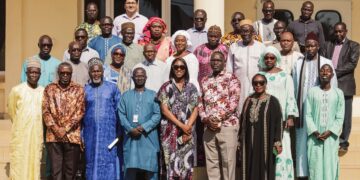
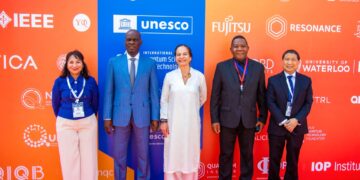



























































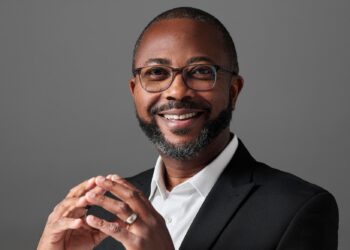

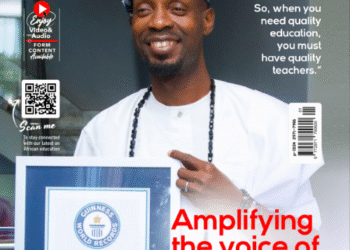

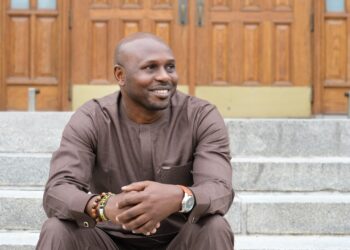










 EduTimes Africa, a product of Education Times Africa, is a magazine publication that aims to lend its support to close the yawning gap in Africa's educational development.
EduTimes Africa, a product of Education Times Africa, is a magazine publication that aims to lend its support to close the yawning gap in Africa's educational development.